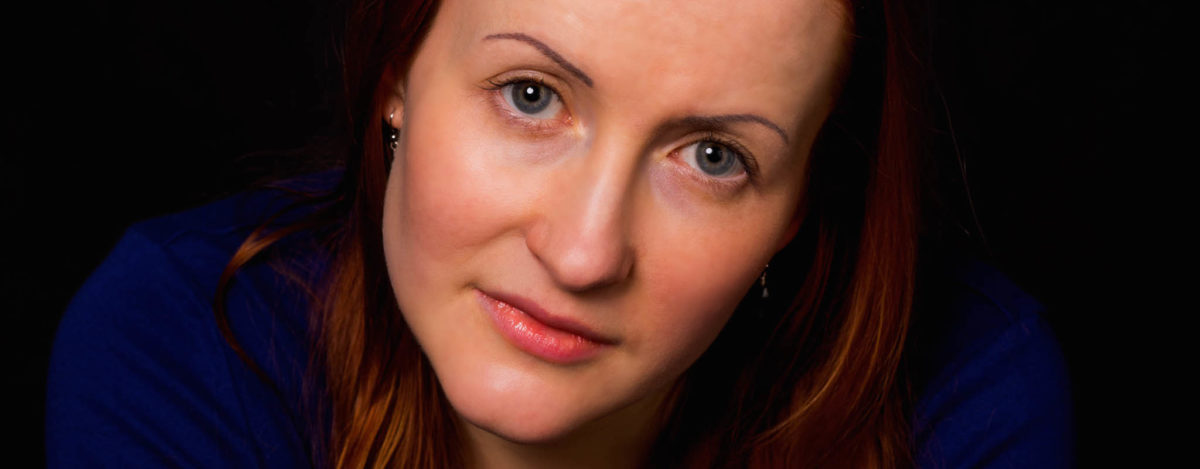How to Survive a Health Crisis with Your Spirit Intact: Part II
Editor’s Note: We Are Diabetes is a nonprofit dedicated to helping those with type 1 diabetes and an eating disorder recover.
It took a lot of effort and research to locate an OBGYN provider who had more than just generic knowledge of polycystic ovary syndrome (PCOS) and diabetes, but I was lucky to finally locate one. By the time I reached his office (with my husband beside me for support) I was a shadow of my former self. My skin was pale and sallow; my words came out jumbled because I could never form clear thoughts anymore. My face had broken out in my first experience ever with “teenage acne.” I sobbed at my first visit with him, begging him to help me stop the bleeding and get me off these awful hormones.
He listened carefully and took a great deal of time with us to let us know what his proposed solution was. It involved surgery and returning to the low dose continuous hormones that had worked for me for years without issue. I was relieved to hear someone offering a logical solution that involved LESS medication and surgical action. I was also overjoyed to hear him agree that if this ever happened to me again, we would move forward with a hysterectomy. No more tinkering with hormones or less effective measures, my poor body had been through enough.
The surgery went well. I healed. I returned to my beloved low dose continuous hormones. I started to come back to life, little by little. I remember feeling moments of “me” return, but then I would fade back into a fog. I was so scared that I would never feel my version of “normal” again, At the time of writing this it’s been just over two full months, and I’m happy to share that I feel about 90 percent “normal” at this point. There is still a deep sense of physical fatigue in my body that I’ve never experienced before. It comes and goes, and I deal with it.
I’m sharing this deeply personal journey with the type 1 diabetes (T1D) community because I want to emphasize something very important: I didn’t lose my spirit during this difficult time. Although I had many physical and emotional obstacles to deal with during this health crisis, I was still able to find a way to run my nonprofit We Are Diabetes. During those eight months, I guided a high number of WAD’s clients through the inpatient treatment process and I communicated with well over a hundred individuals seeking support and resources.
How? By adapting how I worked. I would lay on the floor after my day job with my Bluetooth headset on, chatting with my clients. I’d have my legs elevated to bring blood up to my heart and brain. My “home office” became the couch in the living room where I could sit with the heated blanket (or multiple ice packs, depending on which way my body was fluctuating in temperature that day). I purchased a laptop desk to easily update my client database during calls, while still being in a fairly reclined position.
In the initial months of my health crisis I had a difficult time accepting that I had to adjust how I was doing many of my daily activities. Every adjustment reminded me that there was something “wrong” in my body and that there was no clear distinction as to when it would stop. Letting go of my old morning routine was definitely the hardest. I’d joyfully gone to my beloved 6 a.m. yoga class every weekday ever since I started my recovery journey over seven years ago. I knew every student (I used to teach yoga at this studio before WAD took off) and instructor. My body suddenly couldn’t handle any sort of heated environment during exercise and this studio only offered heated-style classes.
Although I was heartbroken to part from my yoga studio, it inspired me to search for other types of fitness based studios. I finally discovered a non-heated studio that focused on Ballet Barre and dance inspired fitness. I have years of dance training background, so this type of movement is very fun for me and I was thrilled to find a form of fitness that my body could handle. I had found a new way to keep my body active. This transition reminded me that my dedication to (a healthy non-obsessive amount) of exercise was mine and mine alone. It would not magically evaporate because my environment or routine had to change.
I assure you that my mood was not chipper nor “upbeat” during this time in my life (my husband can attest to that), but I didn’t allow what was happening to completely cloud my spirit. I held on tightly to what I could still control. If I hadn’t had We Are Diabetes to focus on during this very scary time in my life, I would have completely fallen apart. I felt so distant from the “real me” during those months but focusing on how I could help others kept me sane and kept my brain from turning to complete mush. Those of us living with multiple autoimmune conditions, or complications from living with diabetes can’t always control how our physical health will be. However, we CAN control how we adapt and emotionally manage ourselves during a health flare.
Read How to Survive a Health Crisis with Your Spirit Intact: Part I by Asha Brown.





